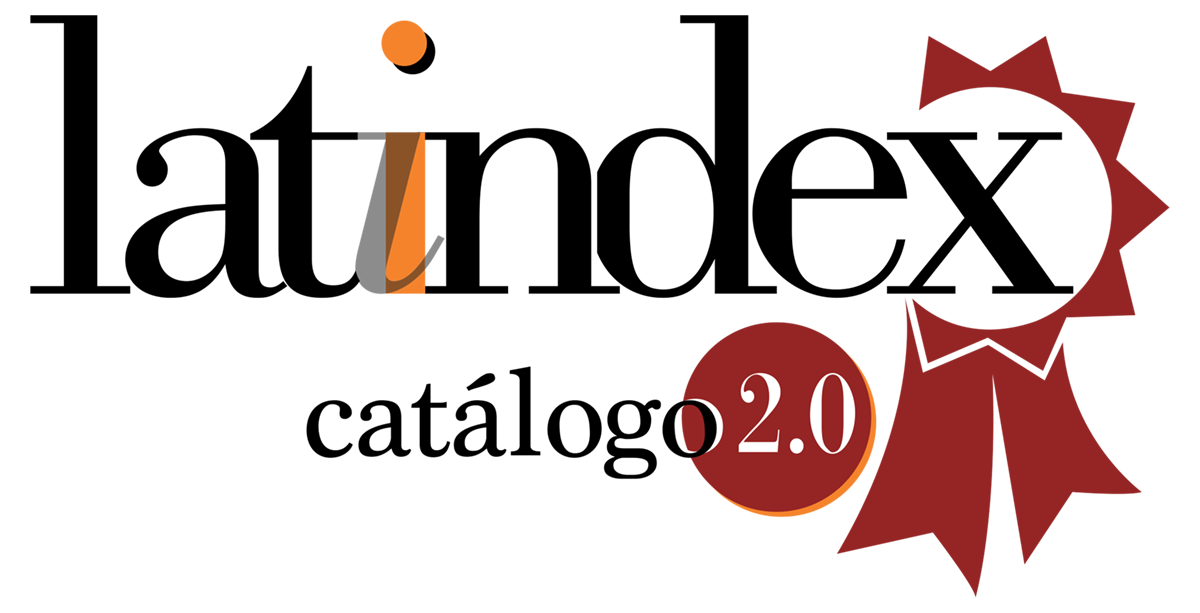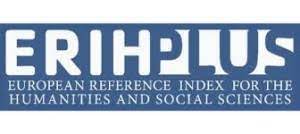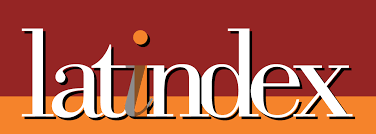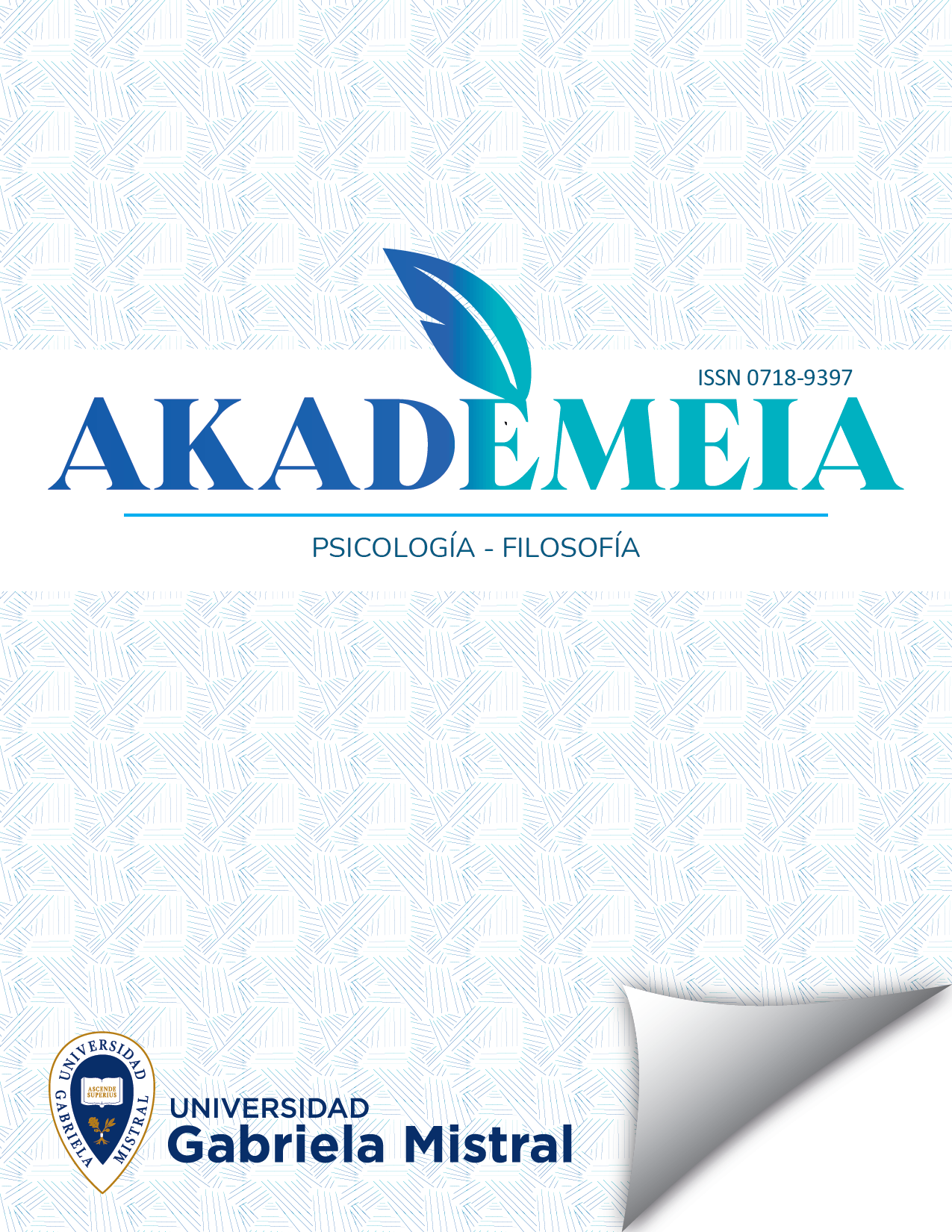Hacia una definición holística del Bienestar: Integrando conceptualizaciones desde la sociología, la psicología y la economía.
DOI:
https://doi.org/10.61144/0718-9397.2021.419Resumen
La investigación científica ha demostrado por más de 50 años, los beneficios de la felicidad y el bienestar para los individuos, las organizaciones, sociedades y el planeta. Sin embargo, actualmente existentes diferencias significativas en la conceptualización y medición del bienestar. Por ejemplo, mientras la sociología se focaliza mayoritariamente en aspectos globales y en las condiciones sociales que afectan el bienestar de las personas, la psicología se centra fuertemente en aspectos individuales, y la economía en aspectos materiales y de ingresos. El principal objetivo de este artículo es discutir la importancia de integrar diferentes perspectivas existentes sobre bienestar. Avanzar en una concepción más holística del bienestar, permitirá ampliar y mejorar la calidad de las políticas públicas que permitan utilizar este indicador para mejorar la calidad de vida de la población. Importantes implicancias teóricas y prácticas desarrollan este artículo, especialmente centrado en el ámbito educación y el llamado “Proyecto Aula Segura”.
Palabras Claves: bienestar; felicidad; educación; políticas públicas
Citas
Abel, A. B., & Bernanke, B. S. (2005). Macroeconomics 5th edition. In Pearson Education (Issue Fifth edition).
Adler, A., Unanue, W., Osin, E., Ricard, M., Alkire, S., & Seligman, M. (2017). Psychological Wellbeing. In K. Urra (Ed.), Happiness: Transforming the Development Landscape (pp. 60–79).
Álvarez, E. A. M. (2017). Una mirada sociológica en el estudio de la felicidad: en respuesta a Ruut Veenhoven.
Becchetti, L., & Pelloni, A. (2013). What are we learning from the life satisfaction literature? International Review of Economics, 60(2). https://doi.org/10.1007/s12232-013-0177-1
Bentham, J. (2008). Los principios de la moral y la legislación. Editorial Claridad.
Blanchflower, D. G., Oswald, A. J., & Stewart-Brown, S. (2012). Is Psychological Well-Being Linked to the Consumption of Fruit and Vegetables? Social Indicators Research, 114(3), 785–801. https://doi.org/10.1007/s11205-012-0173-y
Bradburn, N. M. (1969). The Structure of Psychological Well-Being. In American Sociological Review (Aldine, Vol. 35, Issue 5). https://doi.org/10.2307/2093340
Bravo, D., Oriol, X., Gómez, M., Cortez, D., & Unanue, W. (2020). The Effects of the 2016 Copa América Centenario Victory on Social Trust, Self-Transcendent Aspirations and Evaluated Subjective Well-Being: The Role of Identity With the National Team and Collective Pride in Major Sport Events. Frontiers in Psychology, 11. https://doi.org/10.3389/fpsyg.2020.591498
Cantril, H. (1965). The Pattern of Human Concerns. In The British Journal of Sociology (Vol. 18). New Brunswick, NJ Rutgers University Press. https://doi.org/10.2307/588624
Castellanos Cereceda, R. (2012). El bienestar subjetivo como enfoque e instrumento de la política pública: Una revisión analítica de la literatura. Revista Estado, Gobierno y Gestión Pública, 0(20). https://doi.org/10.5354/0717-6759.2012.25862
Chen, B., Vansteenkiste, M., Beyers, W., Boone, L., Deci, E. L., der Kaap-Deeder, J. Van, Duriez, B., Lens, W., Matos, L., Mouratidis, A., Ryan, R. M., Sheldon, K. M., Soenens, B., Petegem, S. Van, & Verstuyf, J. (2015). Basic psychological need satisfaction, need frustration, and need strength across four cultures. Motivation and Emotion, 39(2), 216–236. https://doi.org/10.1007/s11031-014-9450-1
Cohen, S., Doyle, W. J., Turner, R. B., Alper, C. M., & Skoner, D. P. (2003). Emotional style and susceptibility to the common cold. Psychosomatic Medicine, 65(4). https://doi.org/10.1097/01.PSY.0000077508.57784.DA
Daly, H., & Cobb, J. (1989). Para el bien común: reorientando la economía hacia la comunidad, el ambiente y un futuro sostenible. In Fondo de Cultura Económica.
Deci, E. L., & Ryan, R. M. (2000). The “what” and “why” of goal pursuits: Human needs and the self-determination of behavior. Psychological Inquiry, 11(4), 227–268. https://doi.org/10.1207/S15327965PLI1104_01
Delle Fave, A., Brdar, I., Freire, T., Vella-Brodrick, D., & Wissing, M. P. (2011). The Eudaimonic and Hedonic Components of Happiness: Qualitative and Quantitative Findings. Social Indicators Research, 100(2). https://doi.org/10.1007/s11205-010-9632-5
Diener, E. (1984). Subjective well-being. Psychological Bulletin, 95(3), 542–575. https://doi.org/10.1037/0033-2909.95.3.542
Diener, E., Emmons, R. A., Larsem, R. J., & Griffin, S. (1985). The Satisfaction With Life Scale. Journal of Personality Assessment, 49(1), 71–75. https://doi.org/10.1207/s15327752jpa4901_13
Diener, E., Heintzelman, S. J., Kushlev, K., Tay, L., Wirtz, D., Lutes, L. D., & Oishi, S. (2016). Findings all psychologists should know from the new science on subjective well-being. Canadian Psychology/Psychologie Canadienne, 58(2), 87. https://doi.org/10.1037/cap0000063
Diener, E., & Tay, L. (2012). A scientific review of the remarkable benefits of happiness for successful and healthy living. Report of the Well-Being Working Group, Royal Government of Bhutan: Report to the United Nations General Assembly, Well-Being and Happiness: A New Development Paradigm. New York: UN.
Diener, E., Wirtz, D., Tov, W., Kim-Prieto, C., won Choi, D., Oishi, S., & Biswas-Diener, R. (2010). New well-being measures: Short scales to assess flourishing and positive and negative feelings. Social Indicators Research, 97(2). https://doi.org/10.1007/s11205-009-9493-y
Easterlin, R. A. (2013). Happiness, growth, and public policy. Economic Inquiry, 51(1). https://doi.org/10.1111/j.1465-7295.2012.00505.x
Ferraro, F., Pfeffer, J., & Sutton, R. I. (2005). Economics language and assumptions: How theories can become self-fulfilling. Academy of Management Review, 30(1). https://doi.org/10.5465/AMR.2005.15281412
Helliwell, J. F., Layard, R., & Sachs, J. (2013). World Happiness Report 2013. New York: Earth Institute, Columbia University. http://eprints.lse.ac.uk/57573/
Kahneman, D., Diener, E., & Schwarz, N. (1999). Well-being: The foundations of hedonic psychology. Health San Francisco.
Kroll, C. (2011). Towards a Sociology of Happiness : Examining Social Capital and Subjective Well-being Across Subgroups of Society. In Political Science (Issue November).
Martela, F., Gómez, M., Unanue, W., Araya, S., Bravo, D., & Espejo, A. (2021). What makes work meaningful? Longitudinal evidence for the importance of autonomy and beneficence for meaningful work. Journal of Vocational Behavior, 131. https://doi.org/10.1016/j.jvb.2021.103631
ONU. (2011). Happiness Resolution on happiness and well-being. https://news.un.org/en/story/2011/07/382052
Repetto, R., Magrath, W., Wells, M., Beer, C., & Rossini, F. (1989). Wasting assets: natural resources in the national income accounts. Wasting Assets: Natural Resources in the National Income Accounts.
Reyes, V., Unanue, W., Gómez, M., Bravo, D., Unanue, J., Araya-Veliz, C., & Cortez, D. (2021). Dispositional Gratitude as an Underlying Psychological Process Between Materialism and the Satisfaction and Frustration of Basic Psychological Needs: A Longitudinal Mediational Analysis. Journal of Happiness Studies, 1–26. https://doi.org/10.1007/s10902-021-00414-0
Ryan, R. M., & Deci, E. L. (2001). On happiness and human potentials: A review of research on hedonic and eudaimonic well-being. In Annual Review of Psychology (Vol. 52, pp. 141–166). https://doi.org/10.1146/annurev.psych.52.1.141
Ryan, R. M., & Deci, E. L. (2017). Self-Determination Theory: Basic Psychological Needs in Motivation, Development, and Wellness. In Self-Determination Theory: Basic Psychological Needs in Motivation, Development, and Wellness. Guilford Publications. https://doi.org/10.1521/978.14625/28806
Ryff, C. D., & Keyes, C. L. M. (1995). The Structure of Psychological Well-Being Revisited. Journal of Personality and Social Psychology, 69(4), 719. https://doi.org/10.1037/0022-3514.69.4.719
SNDP. (2013). Summary Document & Proposed Model: Towards a New Development Paradigm. Retrieved from The Steering Committee for the New Development Paradigm, Royal Government of Bhutan. http://www.newdevelopmentparadigm.bt/wp-content/uploads/2013/06/Towards-a-New-Development-Paradigm.pdf
Stiglitz, J. E., & Sen, A. (2009). The Measurement of Economic Performance and Social Progress Revisited Reflections and Overview. Documents de Travail de LOFCE, 33, 79. https://hal-sciencespo.archives-ouvertes.fr/hal-01069384%0Ahttp://www.ofce.sciences-po.fr/pdf/dtravail/WP2009-33.pdf
Unanue, J., Oriol, X., Oyanedel, J. C., Rubio, A., & Unanue, W. (2021). Gratitude at work prospectively predicts lower workplace materialism: A three-wave longitudinal study in Chile. International Journal of Environmental Research and Public Health, 18(7), 3787. https://doi.org/10.3390/ijerph18073787
Unanue, W. (2017). Subjective Well-being Measures to Inform Public Policies. In K. Urra (Ed.), Happiness: Transforming the Development Landscape (pp. 118–155).
Unanue, W., Barros, E., & Gómez, M. (2021). The longitudinal link between organizational citizenship behaviors and three different models of happiness. International Journal of Environmental Research and Public Health, 18(12). https://doi.org/10.3390/ijerph18126387
Unanue, W., Dittmar, H., Vignoles, V. L., & Vansteenkiste, M. (2014).
Materialism and Well-being in the UK and Chile: Basic Need Satisfaction and Basic Need Frustration as Underlying Psychological Processes. European Journal of Personality, 28(6), 569–585. https://doi.org/10.1002/per.1954
Unanue, W., Maercovic, P., Weldt, C., & Olguín, E. (2013). Felicidad, bienestar y desempeño organizacional. In M. D, I.-Z. F., & U. Wenceslao (Eds.), La Felicidad: Evidencias y experiencias para cambiar nuestro mundo (pp. 295–320).
Unanue, W., Martínez, D., López, M., & Zamora, L. (2017). The role of subjective well-being in measuring the progress of nations and guiding public policy. Papeles Del Psicologo, 38(1), 26–33. https://doi.org/10.23923/pap.psicol2017.2818
Unanue, W., Oriol, X., Gómez, M., Cortez, D., & Bravo, D. (2020). Feel the Copa América final: Immediate and medium-term effects of major sport events and national football team identification on different components of subjective well-being. Current Psychology. https://doi.org/10.1007/s12144-019-00545-x
Unanue, W., Rempel, K., Gómez, M. E., & den Broeck, A. Van. (2017). When and why does materialism relate to employees’ attitudes and well-being: The mediational role of need satisfaction and need frustration. Frontiers in Psychology, 8(OCT), 1755. https://doi.org/10.3389/fpsyg.2017.01755
Unanue, W., Vignoles, V. L., Dittmar, H., & Vansteenkiste, M. (2016). Life goals predict environmental behavior: Cross-cultural and longitudinal evidence. Journal of Environmental Psychology, 46. https://doi.org/10.1016/j.jenvp.2016.02.001
Veenhoven, R. (2005). Lo que sabemos de la felicidad. La Calidad de Vida y Bienestar Subjetivo En México.
Veenhoven, R. (2008). Sociological Theories of Subjective Well-Being. The Science of Subjective Well-Being: A Tribute to Ed Diener, 44–61.
Waterman, A. S. (1993). Two conceptions of happiness: Contrasts of personal expressiveness (eudaimonia) and hedonic enjoyment. Journal of Personality and Social Psychology, 64(4), 678. https://doi.org/10.1037//0022-3514.64.4.678
Watson, D., Clark, L. A., & Tellegen, A. (1988). Development and validation of brief measures of positive and negative affect: The PANAS scales. Journal of Personality and Social Psychology, 54(6). https://doi.org/10.1037//0022-3514.54.6.1063
Cómo citar
Licencia
Derechos de autor 2022 Jesús Unanue Manríquez et al.

Esta obra está bajo una licencia internacional Creative Commons Atribución-NoComercial-SinDerivadas 4.0.
Los autores/as conservarán sus derechos de autor y garantizarán a la revista el derecho de primera publicación de su obra, el cual estará simultáneamente sujeto a la Licencia de reconocimiento de Creative Commons (CC BY-NC-ND) 4.0 que permite a terceros compartir la obra siempre que se indique su autor y se comparta el documento, en formato pdf y con la paginación del número original, a través del que este ha sido publicado por la revista. Siguiendo las definiciones establecidas por la licencia (ver: https://creativecommons.org/licenses/by-nc-nd/4.0/deed.es) los números de la revistas seguirán los siguientes términos:
-
Atribución — Usted debe dar crédito de manera adecuada, brindar un enlace a la licencia, e indicar si se han realizado cambios. Puede hacerlo en cualquier forma razonable, pero no de forma tal que sugiera que usted o su uso tienen el apoyo de la licenciante.
-
No Comercial — Usted no puede hacer uso del material con propósitos comerciales.
-
Sin Derivadas — Si remezcla, transforma o crea a partir del material, no podrá distribuir el material modificado.
- No hay restricciones adicionales — No puede aplicar términos legales ni medidas tecnológicas que restrinjan legalmente a otras a hacer cualquier uso permitido por la licencia.












